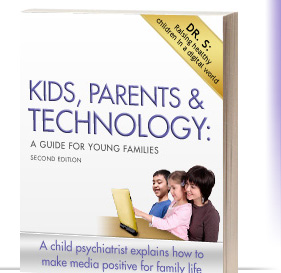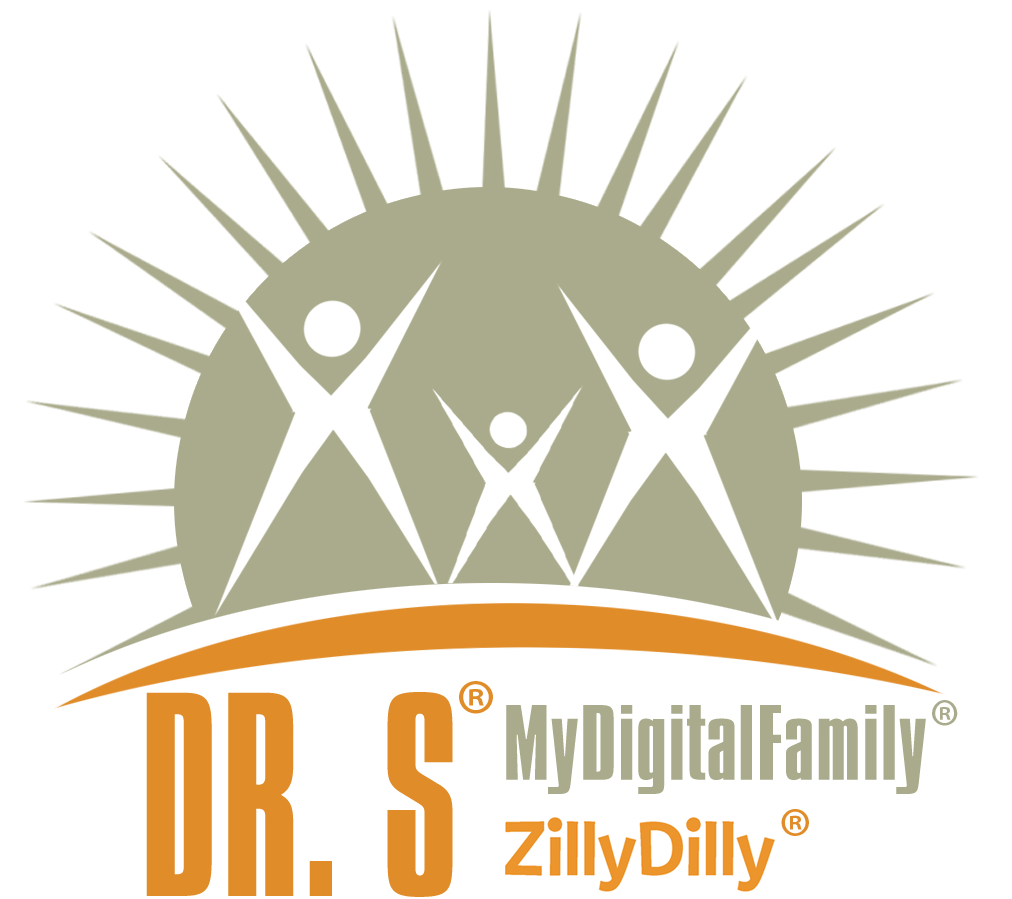Three-year-old David recently had such a major tantrum on board a passenger plane when his father yanked the iPad in his lap to turn it off and click his seatbelt for take-off, that the aircraft returned to the gate to kick him off (http://newsfeed.time.com/2012/06/02/3-year-old-kicked-off-airplane-for-crying/?iid=ec-main-mostpop2?iid=ec-main-mostpop2).
Not a surprising event these days. The child might say,”No fair. You get to use and enjoy the bestest toy (FYI to kids, almost everything is a toy) all the time. It is the awesomest thing ever and I love it and you yank it away. OK, maybe I have ADHD or something, or maybe you never taught me how to obey your no’s, but you are rude, and you really humiliated and let me down.”
There’s a message here, according to leading child psychiatrist Eitan Schwarz, MD, also known as Dr. S, a Northwestern Medical School faculty member, “You can blame the parents, you can blame the kid, you can blame technology, you can blame the airline or anyone you want. But the facts are clear: Kids are fascinated by interactive technology ( https://www.chicagotribune.com/2015/08/15/kids-are-enamored-with-gadgets-but-readings-benefits-hard-to-beat/), and parents know too little about managing them to fit appropriately into children’s developmental needs and family life. We know even less about harnessing this natural affinity to engage to exploit their benefit at home or school.”
Parents and schools that can afford them are rushing to buy and install iPads all over the world with only little idea about potential effects. “Touted as universally the best thing slice sliced bread, iPads can indeed be quite helpful when used for specific goals, especially for kids with special needs, but for the most part the hype is only a measure of the devices’ sensational appeal, and they can be harmful if used unsupervised for junk entertainment (http://www.pewinternet.org), especially as children’s brains are developing. We are all enchanted and will stay so as more and more magical devices keep coming faster and faster (https://mydigitalfamily.org/?p=3035),” according to Dr. S.
“Incredibly, after over a decade, there is still no coherent systematic guidance for most parents or teachers. So what are parents to do? Too many are so lured by these magical devices and respond to kids’ nagging so easily that many even abandon common sense. First, you are a model – stop texting while parenting. Teach that these are powerful tools, and learning their correct use is a careful long-term task, like hygiene and other self-care. So bring the iPad home only if you are sure about how you would use it, and make it a part of family life, like any appliance. Always stay in control of the time and content and introduce it to very young kids only for a specific purpose of learning and never for unsupervised entertainment,” urges Dr. S.
“Researchers and educators are beginning to recognize and addrtess the problem (http://www.naeyc.org/files/naeyc/file/positions/PS_technology_WEB2.pdf). Actually, you can control the iPad better than any other digital media, so learn how, starting with ZillyDilly curated browser for iPad, the world’s first media content and time manager (http://www.zillydilly.com). Or think of the iPad as a sketch pad. Use the iPad you might use a board game. Not all “educational” apps are educational, so ask a knowledgable teacher. Bring traditional toys into the child’s world and keep him active. And stay engaged with the child even through their teens in some way. Never let an iPad be a babysitter for a preschooler or infant. Also, while there is lots of heat and little light about “screen time”, not all screens are the same and no general rules can apply here except to use these devices only to benefit the young child’s development and family life,” according to Dr. S, author of “Kids, Parents & Technology: A Guide for Young families” (http://www.mydigitalfamily.org).
Article by Eitan ‘Dr. S®’ Schwarz, MD
©All rights reserved



Tots: You Are Failing Us. We Need You To Manage Our Digital Media Lives Better
Originally published by ThinkerMedia: BestThinking.com on December 27, 2012
As younger and younger kids use powerful new technologies, parents and educators must learn to manage these interactions more systematically and effectively.
Three-year-old David recently had such a major tantrum on board a passenger plane when his father yanked the iPad in his lap to turn it off and click his seatbelt for take-off, that the aircraft returned to the gate to kick him off (http://newsfeed.time.com/2012/06/02/3-year-old-kicked-off-airplane-for-crying/?iid=ec-main-mostpop2?iid=ec-main-mostpop2).
Not a surprising event these days. The child might say,”No fair. You get to use and enjoy the bestest toy (FYI to kids, almost everything is a toy) all the time. It is the awesomest thing ever and I love it and you yank it away. OK, maybe I have ADHD or something, or maybe you never taught me how to obey your no’s, but you are rude, and you really humiliated and let me down.”
There’s a message here, according to leading child psychiatrist Eitan Schwarz, MD, also known as Dr. S, a Northwestern Medical School faculty member, “You can blame the parents, you can blame the kid, you can blame technology, you can blame the airline or anyone you want. But the facts are clear: Kids are fascinated by interactive technology ( https://www.chicagotribune.com/2015/08/15/kids-are-enamored-with-gadgets-but-readings-benefits-hard-to-beat/), and parents know too little about managing them to fit appropriately into children’s developmental needs and family life. We know even less about harnessing this natural affinity to engage to exploit their benefit at home or school.”
Parents and schools that can afford them are rushing to buy and install iPads all over the world with only little idea about potential effects. “Touted as universally the best thing slice sliced bread, iPads can indeed be quite helpful when used for specific goals, especially for kids with special needs, but for the most part the hype is only a measure of the devices’ sensational appeal, and they can be harmful if used unsupervised for junk entertainment (http:
“Incredibly, after over a decade, there is still no coherent systematic guidance for most parents or teachers. So what are parents to do? Too many are so lured by these magical devices and respond to kids’ nagging so easily that many even abandon common sense. First, you are a model – stop texting while parenting. Teach that these are powerful tools, and learning their correct use is a careful long-term task, like hygiene and other self-care. So bring the iPad home only if you are sure about how you would use it, and make it a part of family life, like any appliance. Always stay in control of the time and content and introduce it to very young kids only for a specific purpose of learning and never for unsupervised entertainment,” urges Dr. S.
“Researchers and educators are beginning to recognize and addrtess the problem (http://www.naeyc.org/files/naeyc/file/positions/PS_technology_WEB2.pdf). Actually, you can control the iPad better than any other digital media, so learn how, starting with ZillyDilly curated browser for iPad, the world’s first media content and time manager (http://www.zillydilly.com). Or think of the iPad as a sketch pad. Use the iPad you might use a board game. Not all “educational” apps are educational, so ask a knowledgable teacher. Bring traditional toys into the child’s world and keep him active. And stay engaged with the child even through their teens in some way. Never let an iPad be a babysitter for a preschooler or infant. Also, while there is lots of heat and little light about “screen time”, not all screens are the same and no general rules can apply here except to use these devices only to benefit the young child’s development and family life,” according to Dr. S, author of “Kids, Parents & Technology: A Guide for Young families” (http://www.mydigitalfamily.org).
Article by Eitan ‘Dr. S®’ Schwarz, MD
©All rights reserved